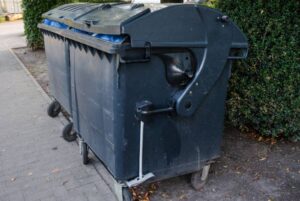The main benefit of recycling is that it saves natural resources such as water, coal, oil and timber. It also conserves land as waste products are not buried in landfills or burned in incinerators, provided you choose the ideal recycling depot location Adelaide.
A variety of waste materials can be recycled, including paper (magazines, junk mail, telephone books), cardboard boxes and metal products like empty aluminium cans and foil. These are sent to recycling facilities where they are sorted, cleaned and processed into ideal materials for manufacturing.
1. Saves Energy
 It takes a lot of energy to extract, transport and convert raw materials into new products. Recycling reduces the demand for these raw materials and subsequently saves a significant amount of energy.
It takes a lot of energy to extract, transport and convert raw materials into new products. Recycling reduces the demand for these raw materials and subsequently saves a significant amount of energy.
It also prevents pollutants from being released into the environment when waste is burned or buried in landfills. That is because it means that fewer natural resources and raw materials need to be mined and processed.
Nevertheless, the process of recycling itself uses a significant amount of energy as trucks need to pick up recycled materials and deliver them to factories for processing. Despite this, it is still much more energy efficient than making new products from scratch.
For example, every aluminium can recycled saves enough energy to power a television for three hours. And it’s not just about aluminium cans – you can recycle plastic bottles, tin foil (that comes with takeaway meals and ready-cook food) and paper drink cartons. You can even recycle electronics and metal scrap. Just make sure you keep a separate bin for all your rubbish and items that can be recycled.
2. Reduces Greenhouse Gas Emissions
The materials recycled at a recycling depot location Adelaide are often used to make new items. It is a great way of avoiding the need to extract new raw materials from the earth, which produces lots of greenhouse gases during the extraction and manufacturing process.
One of the best things about recycling is that it prevents rubbish from ending up in landfills or being burned in incinerators. When waste is left to rot in landfills, it releases toxic substances into the environment. Similarly, when incinerated, waste can release a harmful cocktail of greenhouse gases into the atmosphere.
Removing waste from landfills and incinerators also helps to reduce the huge amount of trash that ends up in our oceans, creating giant patches of garbage like the infamous Great Pacific Garbage Patch. Many of these patches are made of plastic, which is not biodegradable and takes hundreds of years to break down. By reducing the amount of plastic we produce and recycle, we can help to minimise the impact of this on our planet.
3. Saves Money
Recycling does have a cost; in some cases, it costs up to thrice as much as simply sending waste to landfills. It is because arrangements must be made for regular waste collection vehicles and staff, new bins for households, infrastructure and large recycling centres.
However, by choosing to recycle, consumers can help to cut these costs. Many supermarkets and petrol stations, for example, have recycling bins that people can use to dispose of their used batteries, car oil and spray paint cans. It reduces the cost of purchasing these items from other suppliers as well as reducing the environmental impact of transporting these items long distances.
Similarly, businesses can save money by prioritising recycling and adopting a waste reduction strategy. By switching to reusable glassware for drinks, for example, companies can save on the cost of buying and storing plastic cups and also cut back on packaging materials. In addition, by repurposing paper and cardboard boxes, companies can save money on storage and shipping costs. By encouraging employees and customers to recycle, companies can also cut back on wasted energy costs in the office.
4. Creates Jobs
The recycling process at a recycling depot location Adelaide creates jobs in a variety of different sectors. There are jobs for those who collect the waste from residential areas, drop-off points, construction and demolition centres and businesses. There are also jobs for those who sort through the materials to find valuable materials and to prepare them for sale to other companies.
Other recycling jobs include those at facilities that produce recycling equipment. There are also jobs in a number of reuse and repair businesses that sell recycled items, such as thrift stores, auto salvage yards, computer refurbishers and used book stores. The recycling industry also provides many middle-class jobs and is a good source of employment for those with minimal education.